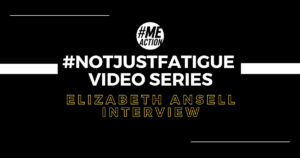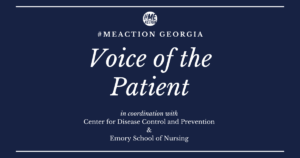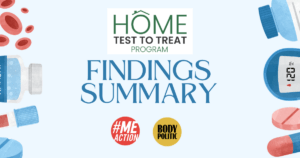Professor Jonathan Edwards, along with several ME/CFS patients and a carer with scientific backgrounds have co-authored a peer-reviewed editorial on the disease that appears in the latest issue of the journal Fatigue: Biomedicine, Health & Behavior.
The article is titled, The biological challenge of myalgic encephalomyelitis/chronic fatigue syndrome: a solvable problem. The paper has gained over 1600 views in the three days since publication, making it already Fatigue’s second most-read paper since the journal began in 2013.
The paper is an overview of the most promising developments in biomedical research into ME/CFS. The authors “call on the wider biomedical research community to actively target this condition” and make a “concerted effort.”
Simon McGrath, an ME/CFS patient well-known for his blogs on the science of the illness, was one of the editorial’s authors. He said, “We felt it was time to make the case for biomedical research, aiming to summarise the most promising research, while acknowledging its limitations”.
He added, “The aim of the paper is to provide a ‘way in’ to biological ME/CFS research for researchers who might be interested but were overwhelmed by the vast literature of mainly unconfirmed findings, or those who doubted there was anything of merit in biological research.”
The paper includes what he described as “the most interesting studies, including the two-day exercise challenge, changes in gene expression after moderate exercise, and brain scans indicating microglia activation”. The editorial also highlights the promising rituximab treatment pilot studies and ongoing trial.
He added that the article “sets out some possible general models, and proposes some important practicalities including better infrastructure/cohorts, stress-testing, replication, and exploring immunological, autonomic and CNS factors.”
The team used a private subforum on the online ME/CFS forum Phoenix Rising to collaborate on the work. McGrath thanked Phoenix Rising and its organisers, and said, “We live in three different countries and have still never met, but it shows what can be accomplished when patients are given the tools… for discussion”.
He added that the project had been possible because a researcher had been “willing to judge patients by what they can contribute, not who they are… a lot of researchers would not dream of doing so”.
Emeritus Professor Edwards of University College London is well known in the ME/CFS community for his work supporting B-cell research and the effort to have a rituximab trial in the UK. He proposed in 1999 that self-perpetuating B lymphocytes drive human autoimmune disease and his 2004 studies of rituximab for rheumatoid arthritis, published in the New England Journal of Medicine, confirmed the concept.

#NotJustFatigue Video Series: Interview with Creator Elizabeth Ansell
Over the past year, the #NotJustFatigue website, created by Elizabeth Ansell, releases a 10-part, documentary style, short form video series on different aspects involved in living with ME. Titles of the videos include topics such as: You Have No Idea How Serious This Is, Nobody Believes ME, and It’s Not Hysteria: It’s Sexism. In these





4 thoughts on “Patients and professor publish biomedical ME/CFS paper”
Thank you very much to everyone involved in writing this very helpful paper. Prof Edwards has long been a stalwart supporter of pwME, and I am grateful to the patients who have spent so much of their precious energy on this.
I have such empathy for anyone going through this. I’ve had this for close to 16 years. I barely manage to hang in there at times but I remain employed and can put in a good smile and do fairly well for limited periods of time. It’s a win lose with anything that exerts me, and the gardening today gave me such joy, but I’ve been in bed the rest of the day. The exertion, exhaustion and pain secondary to any above normal activity is frustrating. I hope and pray that more definitive answers and treatment will be found in my lifetime. How lovely to have life returned to us, once again.
A timely reminder, with the 11th Invest in ME Conference & 6th Biomedical Researchers into ME Colloquium approaching over the first three days of June, that Professor Jonathan Edwards was inspired to get involved by attending the Invest in ME Conference in May 2103. I’ve just highlighted extracts from his 2013 statement on another post, so I’ll c&p here –
“My interest in ME/CFS was sparked when I was invited, unexpectedly, by IiME to the IiMEC8 Conference in May.
“The meeting was impressive: not just professional science, but at a high level. I was particularly impressed that negative findings were given adequate weight.
“It became clear to me that there was a community committed to identifying and encouraging the very best research in a difficult and neglected field.
“After the IiME Conference I began thinking about my personal experience of patients and friends with ME/CFS. I was sent a copy of ‘Lost Voices ‘ by IiME, which made me think more. It struck me that, whether or not results are positive, further trials of rituximab for ME/CFS should be encouraged not only because impact on life for those affected can be so severe but also because further trials could give clues to disease mechanism. I am retired and would not be personally involved but have suggested to IiME that I would be happy to advise and to encourage others to set up a trial.” From – http://www.ukrituximabtrial.org/Rituximab%20news-July13%2001.htm
The latest on that is that Professor Edwards recommended starting by a study of B-cells and the first paper on this has been published. Layman’s Summary here on the UK Rituximab Trial site – http://www.ukrituximabtrial.org/Rituximab%20news-Mar16%2001.htm
IIME Conference site – http://investinme.eu/IIMEC11-news.shtml
p.s. Professor Jonathan Edwards is also a member of the Invest in ME Research Advisory Board –
http://www.investinme.org/IIME%20AB.htm
Comments are closed.